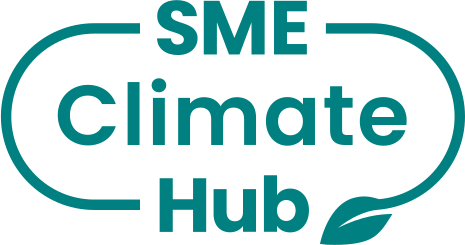Report your progress
The SME Reporting Tool enables committed SMEs to report on their emissions
The SME Reporting Tool enables committed SMEs to report on their emissions


The SME Reporting Tool helps small businesses create annual greenhouse gas emission reports and track their reduction efforts. Tailored for SMEs and originated from the SME Climate Disclosure Framework, the reported data can be used in your business reports, websites, or shared with stakeholders.
Reporting on key actions and initiatives a company is taking to reduce its emissions is important for understanding what the company is doing to meet its targets and the impact of its initiatives on the company’s emissions.
The SME Reporting Tool is provided as a free resource to enable SMEs to create a climate report summarizing their annual greenhouse gas emissions, including the actions they are taking and the impact of their emissions reduction effort.
The report and its data can be integrated into annual business reports, shared on company websites, or directly distributed to customers and funders.
What you can do today:
See the steps you can take and get help building a plan to cut your business emissions today.
It’s easy to make the commitment. Just complete a form sharing your intent to reduce your emissions.
You’ll earn public recognition for taking the first step.
Have you and your company already made the commitment or registered to use our tools?
If you are a first time visitor, you can register now to get immediate and free access to our tools.
Don't have an account? Create account
Don't have an account? Create account to access our tools or make the SME Climate Commitment
Don't have an account? Create account to access our tools or make the SME Climate Commitment
Please enter your email address. You will receive a link to create a new password via email.